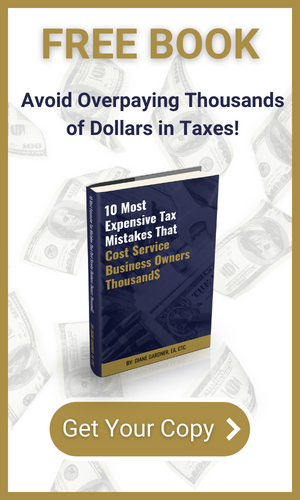 December is a busy month for holidays, what with Christmas, Hanukkah, and Kwanzaa all crowding calendars. But there’s a lesser-known holiday that falls on December 16 that we don’t want you to miss. It’s not Ugly Christmas Sweater Day or Free Shipping Day (although those are both fun, too). We’re talking, of course, about the obvious celebrations surrounding Chocolate Covered Anything Day. (Look it up!) Taxes
December is a busy month for holidays, what with Christmas, Hanukkah, and Kwanzaa all crowding calendars. But there’s a lesser-known holiday that falls on December 16 that we don’t want you to miss. It’s not Ugly Christmas Sweater Day or Free Shipping Day (although those are both fun, too). We’re talking, of course, about the obvious celebrations surrounding Chocolate Covered Anything Day. (Look it up!) Taxes
Most of us look for foods that are delicious, filling, and healthy. Chocolate-covered pretzels, chocolate-covered potato chips, chocolate-covered bacon, and chocolate-covered chili peppers are all yummy and filling, and — well, as the philosopher-poet Meat Loaf taught us, “Two out of three ain’t bad.” Think of Chocolate Covered Anything Day as pre-season training for the real binging that comes later in the month. (ABC News reports the average American consumes nearly 7,000 calories on Christmas Day alone.) Taxes
Just like the rest of us, tax collectors love chocolate-covered treats, too. They’re not savages! But tax collectors have been plying their trade alongside candy makers and pastry chefs, for nearly as long as the rest of us have been enjoying their treats: Taxes
- The Aztecs, who believed their feathered serpent deity Quetzalcoatl had received chocolate as a gift from the gods, used cocoa beans as actual currency. We’re not sure what sort of taxes the Aztecs might have levied on themselves . . . but it had to make it a little easier to pay them in beans!
- In 1692, France’s King Louis XIV, whose wife loved drinking chocolate, levied one of the first actual cash taxes on the delicacy.
- In 1847, a British chocolate company called J.S. Fry & Sons produced the first modern-day chocolate bar. Shortly thereafter, Britain lowered taxes on chocolate to encourage production of the new treats.
- In Finland, taxes on chocolates and other sweets will melt away on January 1, 2017. A Finnish financial parliamentary committee decided last year that the taxes violated European Union rules on treating similar products fairly and equitably.
Today’s chocolate makers are just as tempted by sweet tax breaks as the rest of us. In 2010, Kraft Foods bought British chocolatier Cadbury in a bittersweet hostile takeover for £11.5 billion ($18.9 billion). Since then, they’ve left a bad taste in the taxpaying public’s mouth by using interest payments on the debt they used to buy the company to avoid paying tax on hundreds of millions of pounds of profits. Even worse, they changed the recipe for Cadbury creme eggs (!) and started selling them in packages of five instead of six (!!).
There’s nothing sweet about paying taxes you don’t have to pay. That goes for your chocolates, your income, your investments, and anything else. And we’re always looking for ways to help accomplish that goal. So think about us while you’re dipping a twinkie into chocolate sauce, and call us with your questions!



